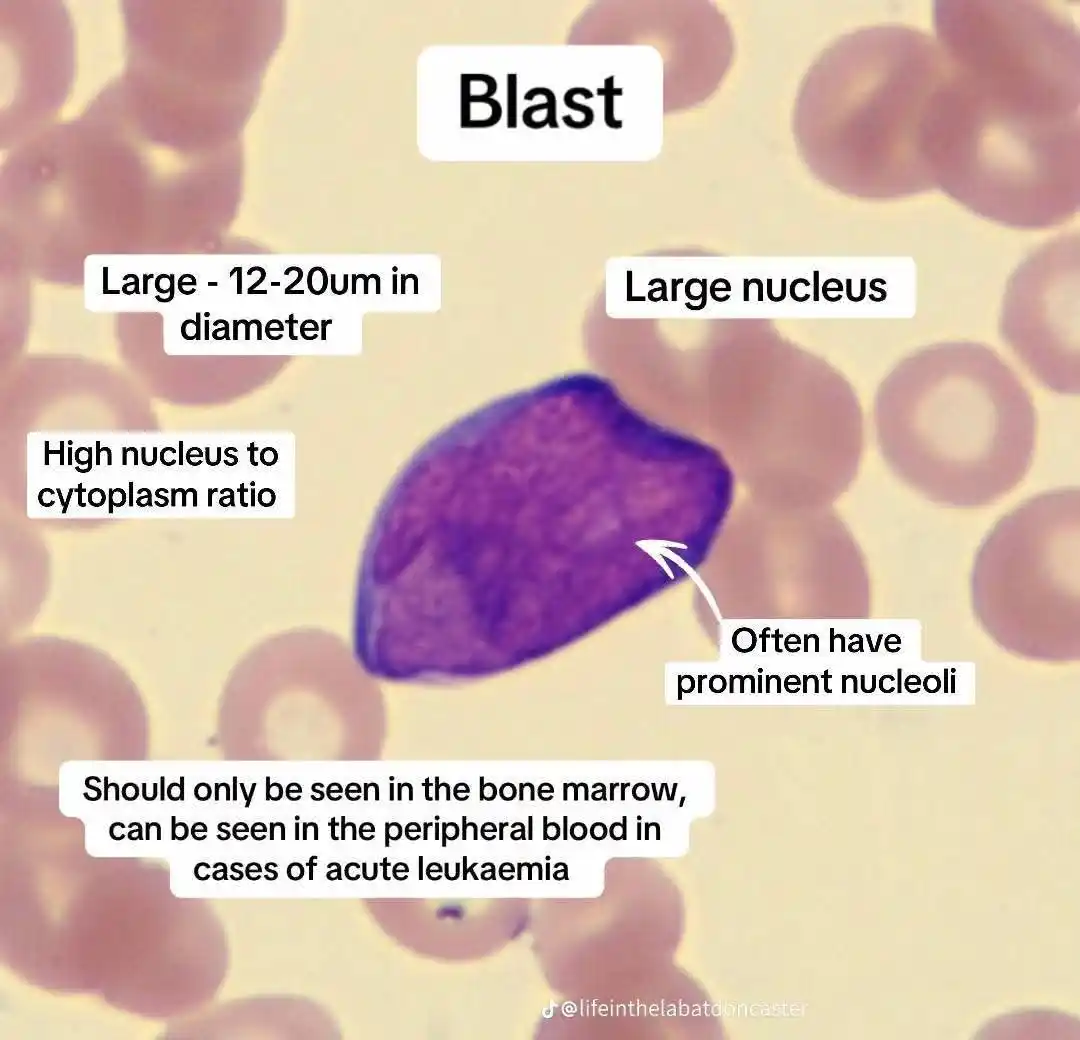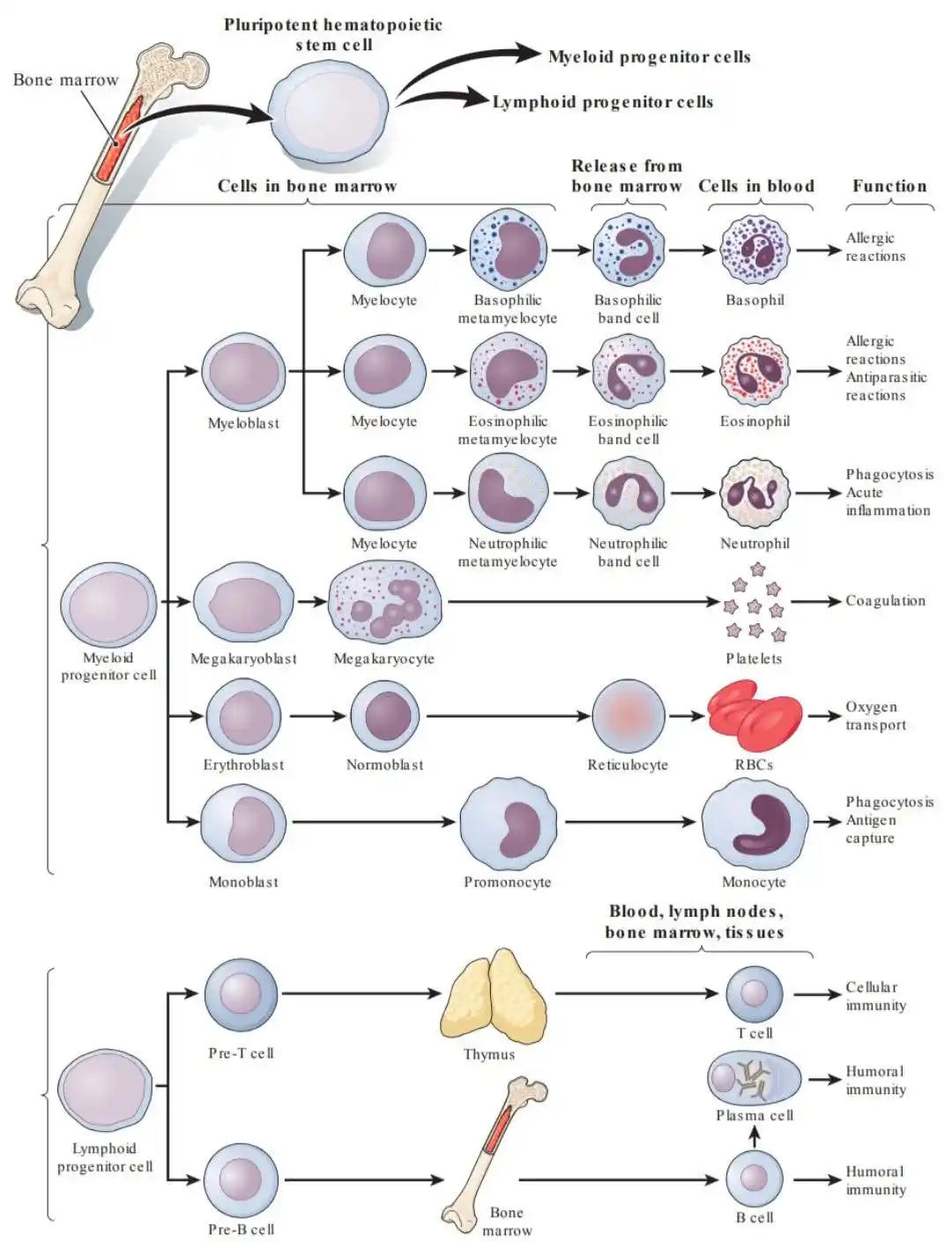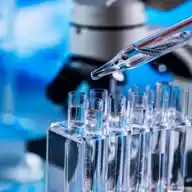
🔬Forum of Clinical Laboratories💉
2.3K subscribers
About 🔬Forum of Clinical Laboratories💉
🔬 *Forum of Clinical Laboratories* 💉 ♻️ *القناة الطبية الافضل على منصات التواصل الاجتماعي والتي تتميز بتقديم افضل شروحات في العلوم الطبية:* 💥🔬 ✅- *تقديم الخدمات الطبية التعليمية.* ✅- *تتيح تعلم الجانب العملي وتفسير حالات طبية.* ✅- *تعزيز قدرات العاملين في العلوم الطبية.* ✅- *كشف اسرار الطب المخبري وربط النتائج الطبية وسهولة تعليم المشاركين فيها.* ✅- *نشر حالات طبية وتفسيرها.* ✅- *تفسير الحالات الطبية النادرة.* ✅- *كما تقدم الكثير من المعرفة الطبية.* https://whatsapp.com/channel/0029VaGcM6Q29759OWFvhI13
Similar Channels
Swipe to see more
Posts

✨Anti-D incomplete (Du methods) ✨ ❇️Procedure⬇️ ↪️Make 3-5% red cell suspension . ↪️Label clean and dry test tube by Anti-D. ↪️Add 2 drop Anti-D incomplete to the test tube. ↪️Add 2 drop of 3-5% red cell suspension. ↪️mix well and incubation in water bath at 37C for 1 hour. ↪️Add 2 drop of bovine albumin on the slide of test tube and re-incubation for 30 minutes. ↪️Read for agglutination or hemolysis ❇️The result: 🩸Agglutination: confirm that Rh is positive. 🩸No-agglutination: confirm that Rh is negative •┈┈┈❈••✦✾✦••❈•┈┈┈• @LabMed2017
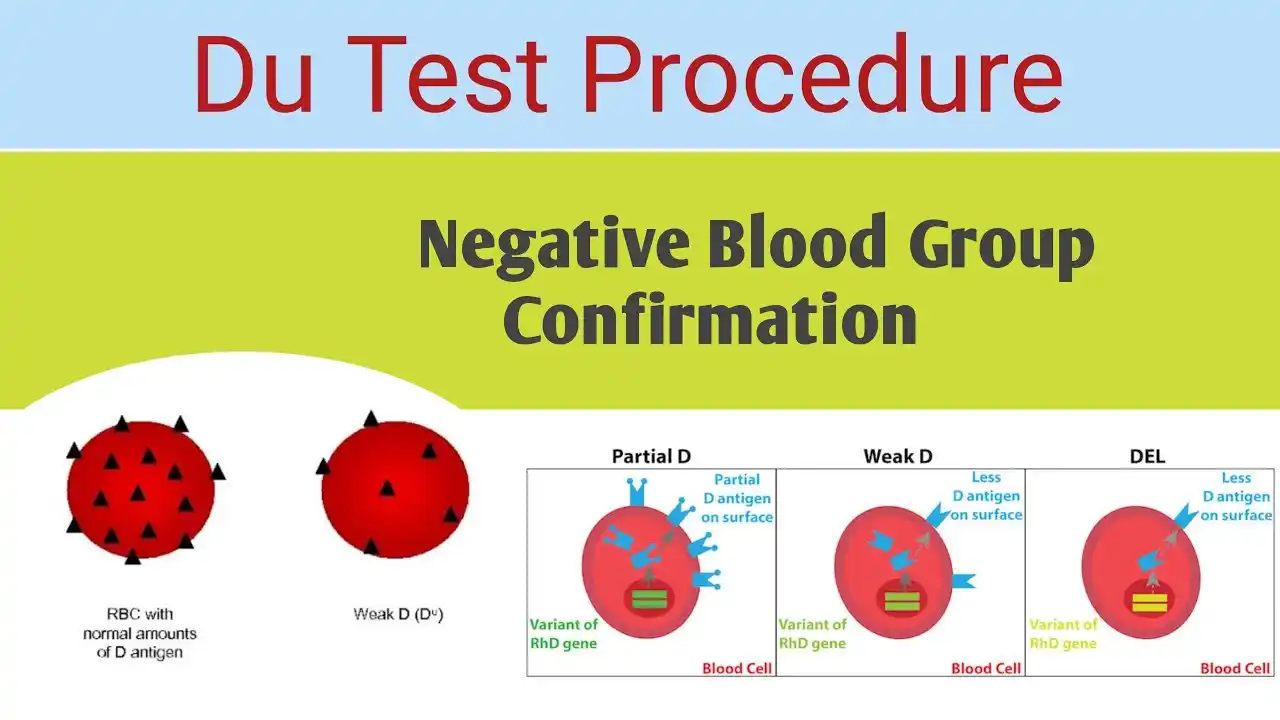

🩸 *Hematopoiesis* 🩸 is the process by which the body produces *blood cells* from *hematopoietic stem cells (HSCs)*. This occurs primarily in the *bone marrow* (in adults) and the *liver and spleen* (during fetal development). 📲 *Stages of Hematopoiesis:* 1. *Hematopoietic Stem Cells (HSCs)* - Pluripotent (can differentiate into all blood cell types). - Reside in the bone marrow. - Can self-renew or differentiate into *myeloid* or *lymphoid* progenitor cells. 2. *Progenitor Cells (Commitment to Lineages)* - *Myeloid Progenitor* → Gives rise to: - *Erythrocytes (red blood cells, RBCs)* - *Platelets* (from megakaryocytes) - *Granulocytes* (neutrophils, eosinophils, basophils) - *Monocytes/macrophages* - *Lymphoid Progenitor* → Gives rise to: - *B cells, T cells, NK cells* 3. *Maturation & Release* - Mature cells enter the bloodstream. - RBCs carry oxygen, WBCs fight infection, platelets aid clotting. 📲 *Regulation of Hematopoiesis* - Controlled by *growth factors & cytokines*: - *Erythropoietin (EPO)* → Stimulates RBC production. - *Thrombopoietin (TPO)* → Stimulates platelet production. - *Granulocyte-Colony Stimulating Factor (G-CSF)* → Stimulates neutrophil production. - *Interleukins (e.g., IL-3, IL-7)*→ Support various lineages. 📲 *Clinical Relevance* - *Bone marrow failure* (e.g. aplastic anemia). - *Leukemia* (abnormal proliferation of blood cells). - *Hematopoietic stem cell transplantation (HSCT)* used to treat blood disorders.

*Q2. Peripheral blood film in typhoid fever usually shows?*

*Guinea Worm Disease (Dracunculiasis)* *1. What is it?* → *Guinea worm diseases* is a parasitic infection caused by the roundworm Dracunculus medinensis. It primarily affects poor communities with limited access to safe drinking water. The disease causes a painful, disabling condition when the adult female worm emerges from the skin. *2. Cause* The disease is caused by ingesting water contaminated with copepods (tiny water fleas), which carry the larvae of the Guinea worm. *3. Transmission* 📲 People get infected by drinking unsafe water containing copepods that have ingested the larvae of the worm. 📲 The copepods die in the human stomach, releasing the larvae. 📲 The larvae then penetrate the intestinal wall, mature in body tissues, and after about a year, the adult female worm travels to the skin. 📲 A blister forms, usually on the lower leg or foot, and the worm starts to emerge. If the blister is submerged in water, the female worm releases thousands of larvae, contaminating the water and restarting the cycle. *4. Symptoms* - Initially, there are no symptoms during the incubation period (which lasts about one year). - Then a painful blister develops on the skin, most commonly on the lower limbs. - The patient may experience a burning sensation, fever, swelling, nausea, and vomiting. - The blister ruptures and the long, thin worm begins to emerge, which can be extremely painful. *Secondary bacterial infections* are common and can lead to complications like joint deformities. *5. Diagnosis* Diagnosis is usually clinical, based on the presence of a blister and the visible worm emerging from the skin. Fluid from the blister can be examined under a microscope to confirm the presence of larvae.


*Q1:* *The following statement is NOT true with respect to hypersegmented neutrophils?*

♦️ *Cardiac Biomarkers*♦️ *1. Troponin* • Definition: A protein released into the bloodstream when cardiac muscle is damaged. • Clinical Significance: • Best indicator of acute myocardial infarction (MI). • Reference Range: 0–0.4 ng/mL • > 0.4 ng/mL suggests myocardial infarction. • Peak Time: Remains elevated for up to 3 weeks. *2. CK-MB (Creatine Kinase–MB Isoenzyme)* • Definition: An enzyme released when the heart, muscles, or brain are damaged. • Clinical Significance: • Cardiac-specific isoenzyme, but less reliable than Troponin for diagnosing MI. • Reference Range: 0–5 ng/mL • Peak Time: 24 hours post-injury. *3. Myoglobin* • Definition: A protein found in both cardiac and skeletal muscle. • Clinical Significance: • Not specific to cardiac injury, but a negative result is helpful in ruling out MI. • Reference Range: 5–70 ng/mL • Peak Time: 12 hours. 💡 Tip: “Myoglobin = Muscle” – think of skeletal and cardiac muscle involvement. *4. BNP (Brain Natriuretic Peptide)* • Definition: A peptide released by the ventricles when overstretched due to fluid overload. • Clinical Significance: • Indicates heart failure (HF) severity. • Reference Ranges: • Normal: < 100 pg/mL • Mild HF: 100–300 pg/mL • Moderate HF: 300–700 pg/mL • Severe HF: > 700 pg/mL

🩸 *RBC morphological changes in Non hemolytic anemia:* 1. *Dimorphic Blood Film:* two populations of red cells 2. *Hypersegmented neutrophils:* a neutrophil with six or more lobes. 3. *Hypochrom(as)ia:* pale red cells. 4. *Macrocytosis:* large red cells 5. *Microcytosis:* small red cells 6. *Pancytopenia:* a reduction in all the formed elements of the peripheral 7. *Poikilocytosis:* unequal shape 8. *Polychromasia:* grey colored red cells on film, indicating presence of increased reticulocytes 9. *Reticulocyte:* an erythrocyte newly released from the bone marrow 10. *Anisocytosis:* red cells of unequal size. 11. *Sideroblast:* RBC with stainable iron 12. *Tear drop cell:* Cell pinched at one end
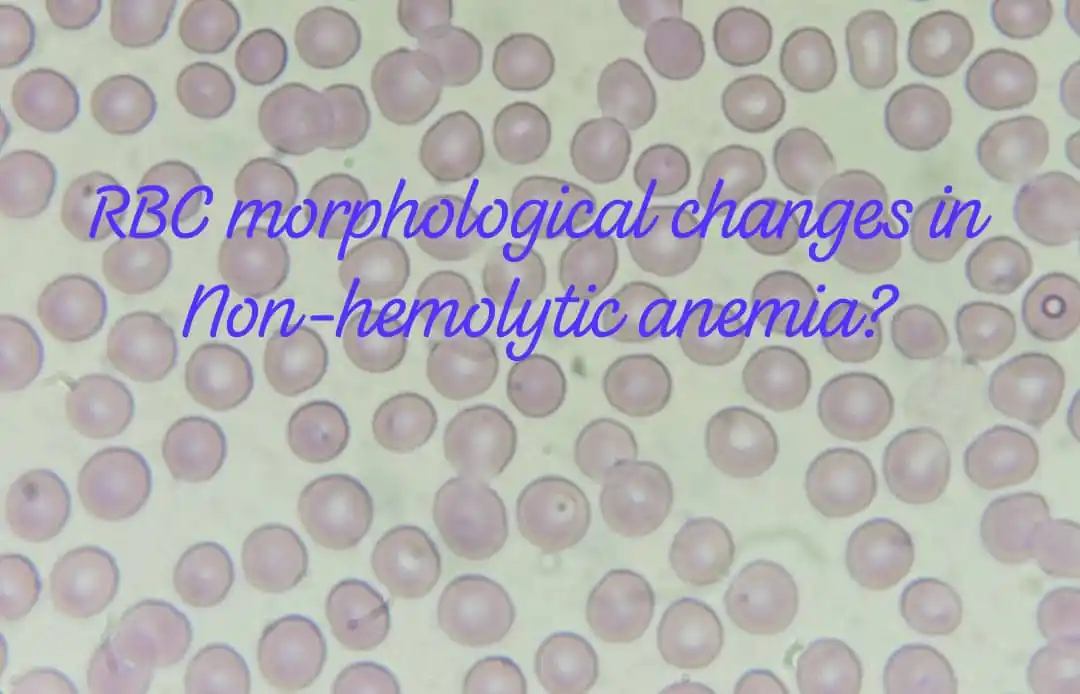

*Some causes of peripheral blood plasmacytosis.* *Reactive* - Bacterial and viral infections and immunisation - Hypersensitivity reactions to drugs - Streptokinase administration - Serum sickness - Systemic lupus erythematosus *Neoplastic* - Multiple myeloma and plasma cell leukaemia - Gamma heavy chain disease - Waldenström macroglobulinaemia (rarely) - Angioimmunoblastic T‐cell lymphoma















